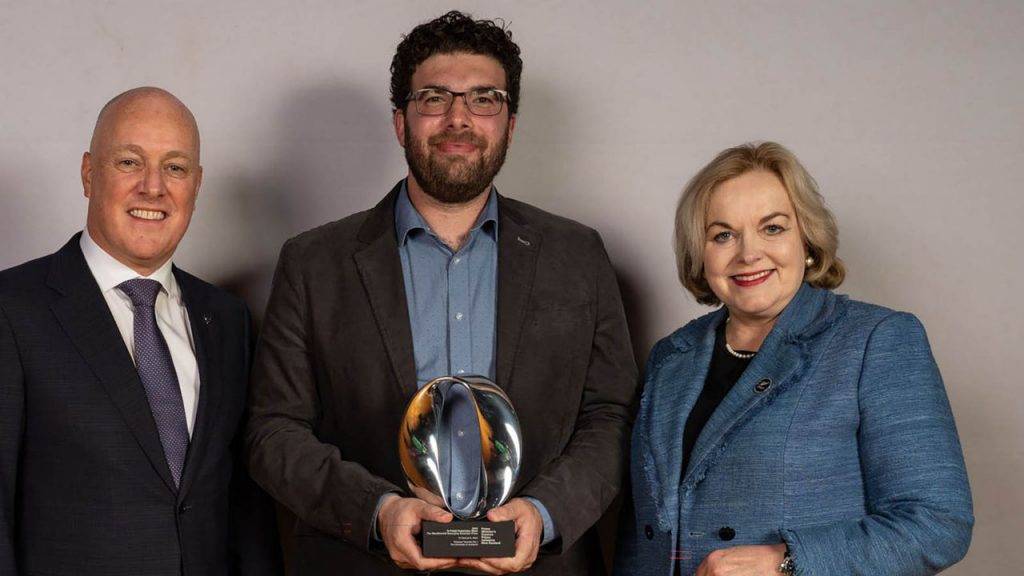Science
Cognitive Scientist Warns of Brain Drain Due to Poor Funding

Cognitive scientist Samuel Mehr has raised significant concerns regarding the future of scientific research in New Zealand. A year after receiving the country’s prestigious science award, Mehr has criticized the current funding structure for science, labeling it as “laughably pathetic.” He argues that without substantial changes, the nation risks losing its most talented researchers to overseas opportunities.
According to Mehr, the past decade has seen a marked decline in New Zealand’s reputation as an innovation hub. The cognitive scientist emphasizes that recent government restructures and funding cuts have only compounded the issue, driving skilled professionals away from the country. He stated that the current situation adds “insult to injury,” as researchers feel increasingly undervalued.
Impact of Funding Cuts on Research Talent
Mehr’s comments reflect a broader sentiment among the scientific community in New Zealand, where funding for research has not kept pace with inflation or the growing demands of modern science. He highlights that many top minds are now considering relocation to countries offering more robust support for research and development.
The implications of this brain drain are severe. With fewer resources, researchers may struggle to conduct essential studies, which could hinder advancements in various fields, including health, technology, and environmental science. The potential loss of expertise may also affect New Zealand’s ability to attract international collaborations and investment, further diminishing its status in the global research landscape.
Moreover, Mehr calls upon government officials to reassess their priorities regarding funding for science. He believes that a lack of investment not only jeopardizes the future of research but also has long-term consequences for the country’s economy and societal progress.
Call for Action from the Scientific Community
The scientific community in New Zealand is rallying around Mehr’s concerns, with many expressing a desire for a more sustainable funding model. Researchers and academics are increasingly vocal about the need for government support that aligns with the realities of contemporary science.
As the conversation continues, Mehr urges stakeholders to recognize the value of investing in science and innovation. He asserts that the future of New Zealand’s research landscape depends on decisive action to improve funding and support for its brightest minds.
In conclusion, the outlook for New Zealand’s scientific community remains precarious unless there are significant changes to the funding framework. As talented researchers weigh their options, the call for increased investment in science becomes ever more urgent.
-

 World3 months ago
World3 months agoTest Your Knowledge: Take the Herald’s Afternoon Quiz Today
-

 Sports3 months ago
Sports3 months agoPM Faces Backlash from Fans During Netball Trophy Ceremony
-

 Lifestyle3 months ago
Lifestyle3 months agoDunedin Designers Win Top Award at Hokonui Fashion Event
-

 Sports3 months ago
Sports3 months agoLiam Lawson Launches New Era for Racing Bulls with Strong Start
-

 Lifestyle3 months ago
Lifestyle3 months agoDisney Fan Reveals Dress Code Tips for Park Visitors
-

 World3 months ago
World3 months agoCoalition Forms to Preserve Māori Wards in Hawke’s Bay
-

 Health3 months ago
Health3 months agoWalking Faster Offers Major Health Benefits for Older Adults
-

 Politics3 months ago
Politics3 months agoScots Rally with Humor and Music to Protest Trump’s Visit
-

 Top Stories3 months ago
Top Stories3 months agoUK and India Finalize Trade Deal to Boost Economic Ties
-

 World3 months ago
World3 months agoHuntly Begins Water Pipe Flushing to Resolve Brown Water Issue
-

 Entertainment3 months ago
Entertainment3 months agoExperience the Excitement of ‘Chief of War’ in Oʻahu
-

 Science3 months ago
Science3 months agoNew Interactive Map Reveals Wairarapa Valley’s Geological Secrets









